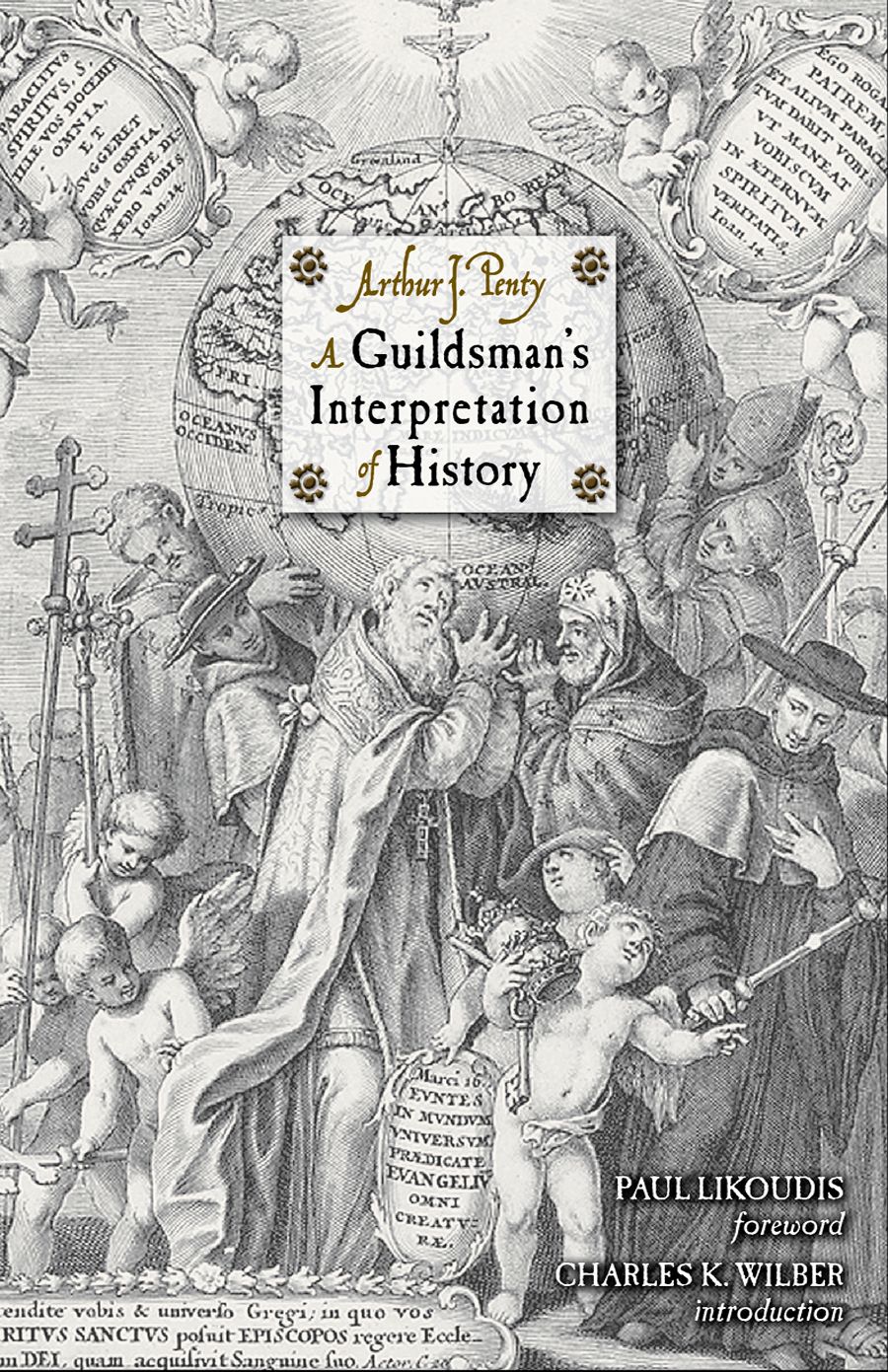
| ||||||||||
| ||||||||||
|
Click here at any time to see the contents of your shopping cart. |
A thorough, well-researched history of Europe from the days of ancient Greece and Rome, which considers the highlights of European history and puts them into a new and compelling frame of reference and interpretation. Penty’s approach is meta-historical in its scope, and might be ranked alongside the work of Toynbee or deTocqueville in its elegance and simplicity, and compared with Christopher Dawson’s understanding of the importance of religion to cultural development and progress. Penty narrows the focus, however, by looking specifically at the socio-economic thread running through European history; he takes the development of a Christian “economic” morality to be the high point of the Medieval view, and traces the growth and decline of this vision across the centuries of European history. His chapters are concise and well-referenced, though not overwhelmed by footnotes. Penty was a master of explaining large concepts in relatively simple terms; his theses always leave the attentive reader wanting more. As for relevance to today’s world, those wanting a candid historical assessment of where and how modern society and culture have gone wrong could do worse than to read the history that is presented in this long-unavailable book. Foreword —Paul Likoudis Introduction —Charles Wilber, Ph.D. Preface —A. J. Penty I. Greece and Rome II. Christianity and the Guilds III. The Medieval Hierarchy IV. The Revival of Roman Law V. Roman Law in England VI. The Conspiracy Against Medievalism VII. Medievalism and Science VIII. The Arts of the Middle Ages IX. The Franciscans and the Renaissance X. The Reformation in Germany XI. The Suppression of the English Monasteries XII. The Reformation in England XIII. The French Revolution XIV. Capitalism and the Guilds XV. Political and Economic Thought After the Reformation XVI. The Industrial Revolution XVII. Parliamentarianism and the Nineteenth Century XVIII. On Limited Liability Companies XIX. The War and the Aftermath XX. Bolshevism and the Class War XXI. The Path to the Guilds | |||||||||||||||||||||||||||||||||||||||||||||||||||||||||||||||||
| Attention bookstores: call or e-mail today for orders in quantity with the standard trade paperback discount: |
IHS Press 222 W 21st St. Suite F-122 Norfolk, VA 23517 877-IHS-PRES (877.447.7737) query@ihspress.com |
||

